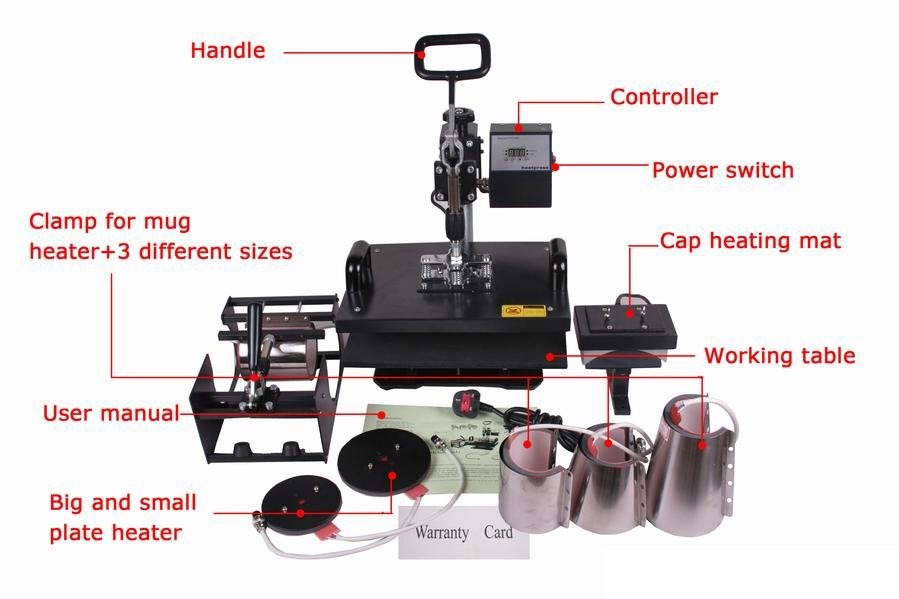What is a Heat Transfer Machine?(2)
A rotary drum heat transfer machine passes the design and the item to be printed between two
giant rollers that apply the necessary heat and pressure. Because of the way this machine is
structured, an operator of this type of heat transfer machine experiences less strain, although
with pneumatic technology being added to some platen types, operators no longer have to lift
heavy objects or worry about the strain from using either machine. Basic platen models, some
small enough to fit on home tabletops, are less costly than larger machines that have more
features and are used for larger scale printing projects.

paper. Depending upon the surface printed upon, the design may be topical in nature only and
require extra sealant, if the surface is not porous. If the surface printed upon is porous, such as
fiber-based items, then the dye sinks into the fibers, and the process is called a sublimation transfer.
The designs may be bought in bulk from a supplier, or created and printed using a graphics program
and computer or, in certain cases, can even be made using a color copier and special paper.

Digital setup also is more difficult, especially for people who are new to digital textile printing. To
properly set up the textile printing, the image has to be saved in several image formats, and the color
has to be calibrated in the correct color setting. Failure to do this will mean that the color that prints
out will be much different from that on the screen.

The inks that are used are different from those used by traditional screenprinting machines, so this
type of textile printing is able to reproduce many different colors. Most graphics are made on computers,
so this printing technology is able to work hand-in-hand with graphic designers and design programs.
These programs can also create interesting effects that can be exactly duplicated with a digital textile
printer.
没有评论:
发表评论